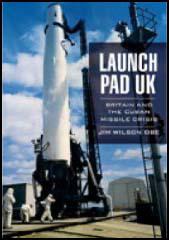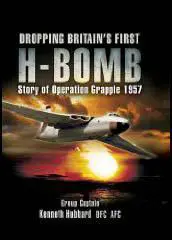Spartacus Review
Volume 28: 14th November, 2008
Britain in the 20th Century

Title: Launch Pad UK: Britain and the Cuban Missile Crisis
Author: Jim Wilson
Editor:
Publisher: Pen & Sword
Price: £19.99
Bookshop: Amazon
Spartacus Website: Cuban Missile Crisis
Category:
For most British people the weekend of 27/28 October 1962 could so very easily have been their last weekend on earth, yet astonishingly the fact that Britain's nuclear deterrent forces went to an unprecedented level of readiness was kept secret from the public. Thor nuclear-tipped ballistic missiles stood on a round-the-clock wartime state of alert ready to be fired, these were the 'other' missiles of the Cuban Missile Crisis, which made Britain, in effect, America's launch pad. During the height of the crisis both RAF Bomber Command and the US Strategic Air Command were poised at the highest states of readiness. Both were ordered to a level of war readiness unparalleled throughout the whole of the forty years of Cold War. There is evidence to suggest that had the US needed to launch an air strike against Russian missiles in Cuba, President Kennedy might have been willing to absorb a Soviet nuclear assault on a NATO ally without retaliation, if it would have avoided escalation to World War Three. It is sobering to those who lived through that period that, the British Ambassador to Cuba commented: 'If it was a nuclear war we were headed for, Cuba was perhaps a better place to be than Britain!'

Title: Developing Britain's First H-Bomb
Author: Kenneth Hubbard & Michael Simmons
Editor:
Publisher: Pen & Sword
Price: £19.99
Bookshop: Amazon
Spartacus Website: Harold Macmillan
Category:
On 15th May 1957 Vickers Valiant V-Bomber XD818 under the command of Wg Cdr Kenneth Hubbard dropped Britain's first live thermonuclear bomb. Grapple was a top secret experiment that involved units from all the UK's defence services and a multitude of leading scientists and technicians. It was based on the Christmas and Malden Islands in the Pacific Ocean, and therefore the initial transportation and logistics planning was of priority importance.
